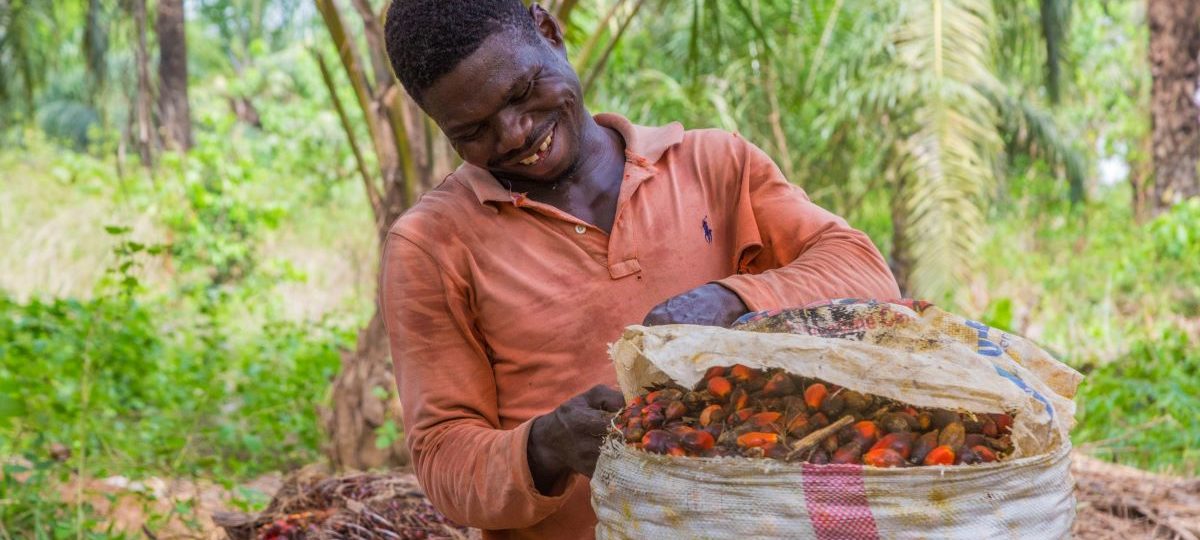The Palm Oil Barometer
To launch the public debate on palm oil, Solidaridad published the Palm Oil Barometer in 2022. Solidaridad drew up this-depth review of the palm oil industry in cooperation with the many organisations that represent smallholder palm oil farmers in Asia, Africa and Latin America. The prevailing image of palm oil in Europe is one-sided and pays no attention to the part played by millions of smallholders active in palm oil production. The main conclusion: invest in oil palm smallholders instead of boycotting palm oil!
It doesn’t matter that just 9% of the worldwide market for palm oil is in Europe. It may be invisible here, but it’s all the more visible in Asia and Africa. Almost every meal includes palm oil in one way or another, making it a crucial ingredient for the poorest people on earth. That’s why it’s important that farmers around the world learn more about the sustainable cultivation of this essential food resource.
